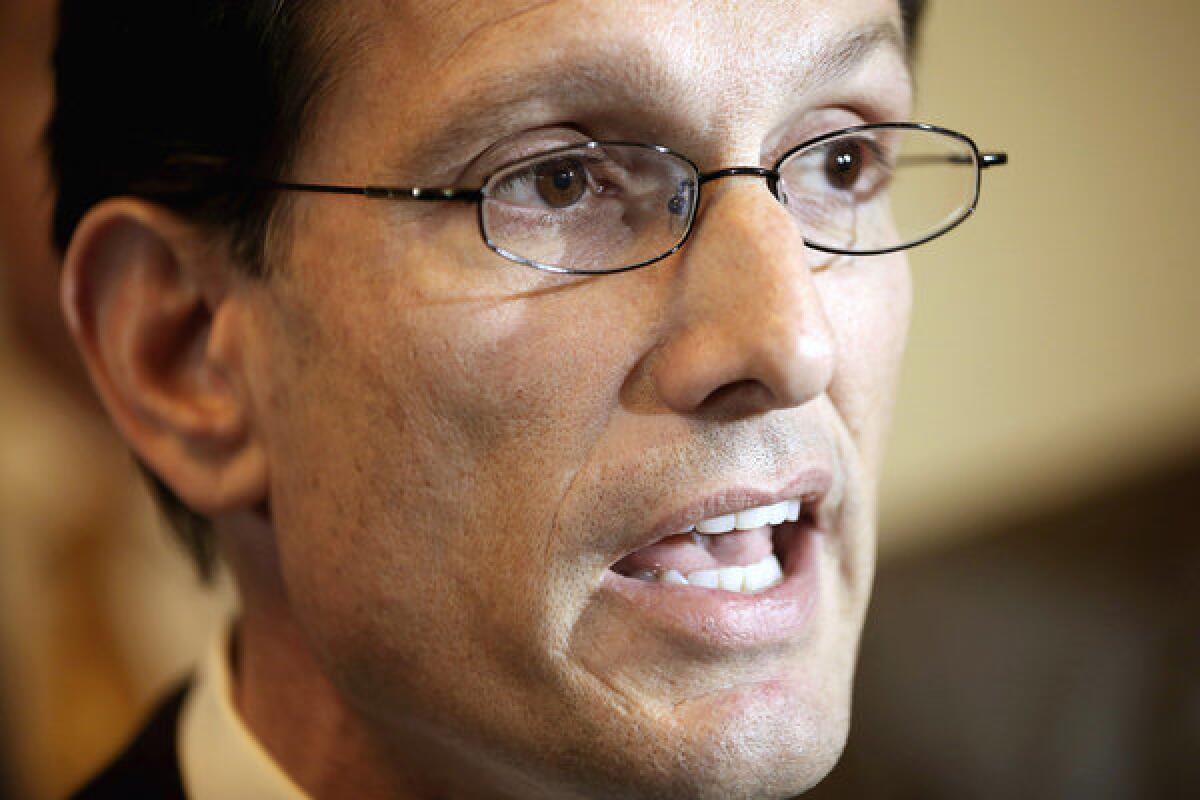House to remain in session until ‘fiscal cliff’ resolved

At least one part of the government will probably be gathered in Washington until a solution is reached in the “fiscal cliff” negotiations: House Majority Leader Eric Cantor (R-Va.) said Wednesday that there would be no adjournment “until a credible solution to the fiscal cliff has been found.”
Citing a “number of outstanding legislative items that we must revolve,” Cantor said on the House floor that “members are advised that the House will now be in session the week of December 17.”
The House had previously been schedule to adjourn Dec. 14. The extension, Cantor said, was first and foremost due to the fiscal cliff. The exact scheduling for the additional sessions will be announced next week.
Cantor added that “members are further reminded that the House will not adjourn the 112th Congress until a credible solution to the fiscal cliff has been found.” That credible solution, presumably, would hew closely to the guidelines he mentioned in a news conference Wednesday morning.
QUIZ: How much do you know about the fiscal cliff?
“An obsession to raise taxes is not going to solve the problem,” Cantor said. “What will solve the problem is doing something about the entitlements, taking on the wasteful spending in Washington.”
Emblematic of the debate in Washington over the looming cliff, Cantor and House Minority Whip Steny Hoyer (D-Ma.) engaged in a heated exchange on the House floor during their weekly colloquy.
Hoyer, pressing for the House to take action on extending President George W. Bush-era tax cuts for the middle class, said “we can debate the other part of it [the fiscal cliff], we can vote on the other part of it. … I don’t think there’s disagreement on the 98%.”
Cantor dismissed Hoyer’s proposal, arguing that such a vote would lead to tax increases on small businesses and wealthy Americans, confounding Hoyer.
“The Senate bill raises taxes on nobody,” Hoyer replied, pounding on his podium.
The fiscal cliff talks between Republicans and Democrats are once again at an impasse, with the House GOP plan, which includes $800 billion in new revenue and $1.4 trillion in cuts, being soundly rejected by the White House (and many Republicans). President Obama’s plan includes $1.6 trillion in new revenue, spurred by a tax increase on top earners, and $400 billion in cuts -- a plan that Republicans in turn have rebuked.
The House is done with voting for the rest of the week, and will not be in session until Dec. 11, largely ensuring that the issue of actually finding a “credible solution” will remain up in the air.
Follow Politics Now on Twitter and Facebook
More to Read
Get the L.A. Times Politics newsletter
Deeply reported insights into legislation, politics and policy from Sacramento, Washington and beyond. In your inbox three times per week.
You may occasionally receive promotional content from the Los Angeles Times.










